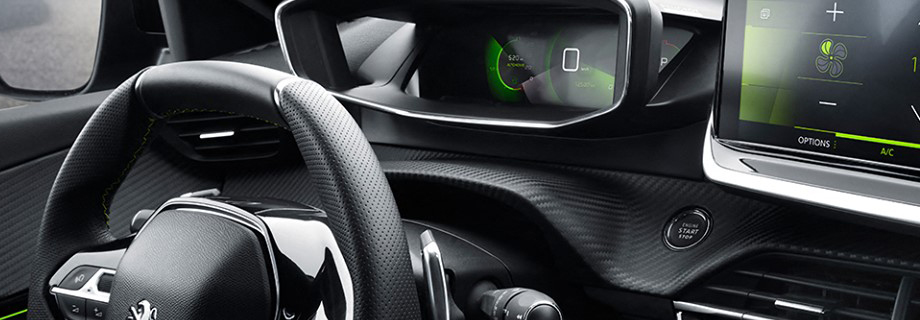Get the most out of your audio system with a Signal Processor!
What is a Signal Processor?
The signal processor’s job is to cut the ‘peaks’ and boost the ‘valleys’ of the sound in the vehicle to smooth it all out. That way all the frequencies are present and at the desired level so you hear everything you are supposed to.
The best way to visualize sound is like waves in water. Sound waves behave like the waves that are created when you toss a stone into a still pond: they originate from one spot (like a speaker) and spread out in a roughly circular pattern. Like waves in a pond, sound waves are affected by everything they run into i.e. your vehicle’s dash or steering column and even sound waves from another speaker in the car. When sound waves meet, one of two things will happen: they will combine together to create a ‘peak’, or they will cancel each other out and create a ‘valley’. The signal processor’s job is to cut the ‘peaks’ and boost the ‘valleys’ of the sound in the vehicle to smooth it all out. That way all the frequencies are present and at the desired level so you hear everything you are supposed to.
Your installer will use the signal processor to match all of the new aftermarket components in the car correctly and compensate for reflective surfaces like glass and absorptive objects such as seats and carpeting. It will also help overcome all of the road, wind, and mechanical noises that occur in every vehicle.
What are the benefits of having a Signal Processor?
One of the biggest problems with factory radios is that the vehicle manufacturer will automatically turn down the bass that occurs at higher volume levels. They do this to protect their speakers so they do not have to replace them under the new car warranty. Only proper signal processing with the correct components, like AudioControl processors, will correct the issue. Factory radios also use heavy equalization at times to compensate for inferior inexpensive speakers. When you install new speakers with dynamic frequency response, this heavy equalization needs to be reversed to let the dynamic speakers play as they were intended. With a signal processor the installer can correct this heavy equalization and allow the rest of the system to perform at its best.
Another problem in car stereo systems is that most speaker locations in relation to the driver’s seat cannot be changed. Because of these basic seating position and speaker location limitations, the driver of the vehicle is usually in an incorrect acoustic alignment. This exists because the sound from the left side arrives at the driver much sooner than the sound from the right side. By delaying the appropriate speakers for just a few milliseconds, the signal processor is able to allow the sound from each speaker to arrive a the exact same time, thus putting the driver in perfect acoustical alignment.
Who should get a Signal Processor?
Anyone who wants to get the most out of their installed audio system, particularly those with a discerning ear, should always consider installing a high-quality signal processor. Signal processors help audio systems achieve their maximum potential and allow you to get the most out of every other product installed in the car.
Also check out Speakers, Amplifiers, Receivers & Subwoofers to create the complete system.




